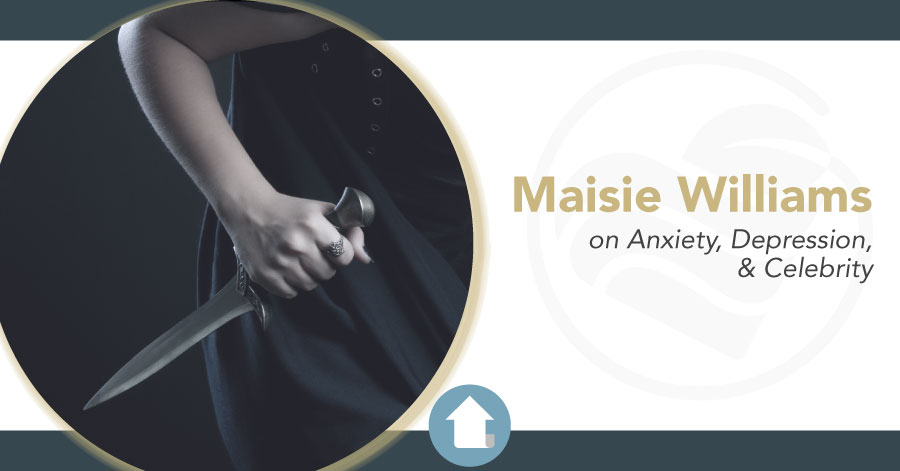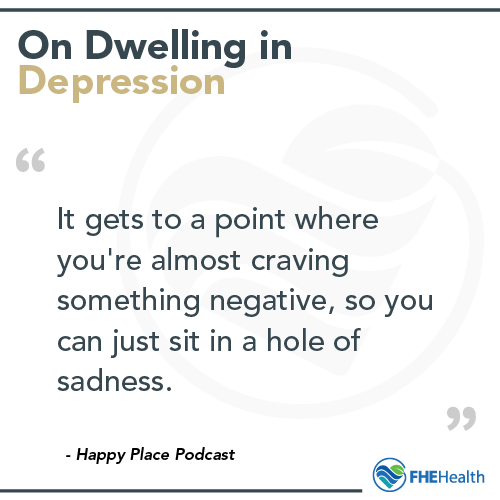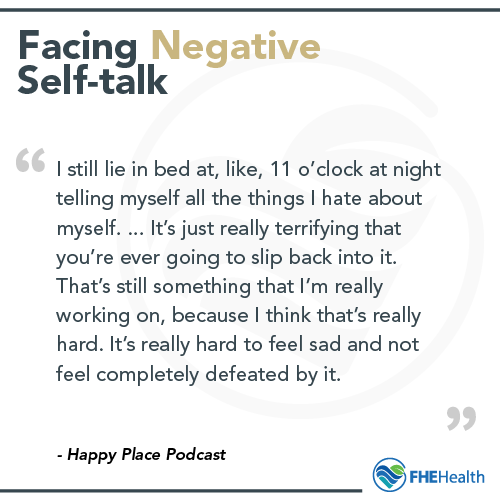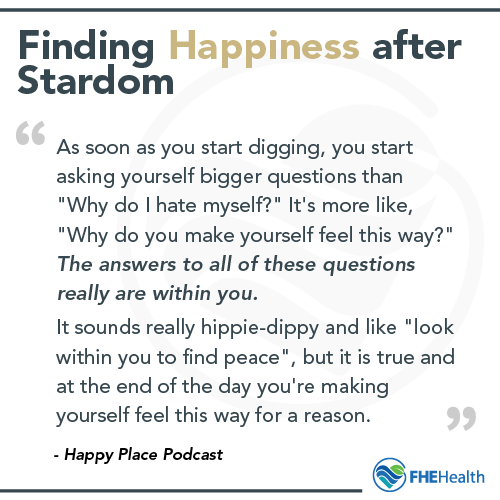
Imagine being thrust into worldwide stardom by winning the role of Arya Stark in HBO’s blockbuster series “Game of Thrones.” Now imagine being only 13 years old and taking on your first acting gig without realizing the overwhelming, psychologically exhausting effects instant stardom would have on your self-esteem and self-identity.
This is exactly what happened to Maisie Williams when she made her debut on “Game of Thrones” in 2016. Within three years, Williams would win numerous awards, including the Saturn Award for Best Performance by a Younger Actor and the Portal Award for Best Supporting Actress. Williams would also be nominated for a prestigious Emmy Award in 2016 and 2018: Outstanding Supporting Actress in a Drama Series.
At first, the fame, respect and money that comes with being a television star are exciting, glamorous and fun. But, like other child stars who found themselves plunging headfirst into the tumultuous world of fame and fortune, Maisie Williams learned quickly that fame had powerfully negative effects on her self-esteem and general mental health.
Social Media Criticism
 Discussing the psychological challenges of trying to deal with life aO s a teenager and television star on one of the most-watched shows of all time, Williams said:
Discussing the psychological challenges of trying to deal with life aO s a teenager and television star on one of the most-watched shows of all time, Williams said:
“There was a time when I was depressed and sad over people criticizing me on social media. I was overwhelmed. It got to a point when I was actually craving negative things just so I could sit in a hole of sadness.” Source: CNN
Now 22 years old, Williams says she has tried to forget about all the critical social media comments but can’t forget the really bad ones that hurt. She says she “lies in bed at night and thinks about the things she hates the most about herself.”
Talking about her mental health on the podcast “Happy Place.” Williams said, “It’s terrifying to consider you could slip back into it [depression]. I’m really working on that right now because it’s hard to deal with. It’s hard to allow yourself to feel sad and not feel completely defeated by sadness.”
Starting Over Again

When Williams knew “Game of Thrones” would end after eight seasons, she talked about how much she was looking forward to not being famous anymore. “I want to experience a normal life,” Williams said. “Honestly, I just want to have a normal life. I don’t want to live a crazy, crazy life because I’ve learned it’s not worth it.”
“As soon as you start digging, you start asking yourself bigger questions than “Why do I hate myself?” It’s more like, “Why do you make yourself feel this way?” The answers to all of these questions really are within you.
It sounds really hippie-dippy and like “look within you to find peace”, but it is true and at the end of the day you’re making yourself feel this way for a reason.” Source: Buzzfeed News
Where Is Maisie Williams Today?

Unlike many child stars, Williams seems to have weathered through her fame, years of cyberbullying and her teenage battles with depression and anxiety. Today, Williams is a successful Internet entrepreneur who recently co-launched Daisie, a social media platform that lets creative individuals collaborate and network on a wide variety of projects. Daisie also helps artists gain exposure to other artists and people interested in promoting new and upcoming artists.
Williams also has a podcast called “Thinking Big with Maisie Williams,” which deals with exploring the childhood dreams of creators and how they achieved their goals.
In addition to Daisie, Williams promotes women’s rights and is an avid animal activist. She is a world ambassador for the nonprofit organization Dolphin Project and regularly speaks out against the abusive treatment of dolphins by the fishing industry.
Why People Neglect to Get Help for a Mental Illness
According to the National Alliance on Mental Illness, over 46 million adults experience a mental health issue in any given year. Among adults with a non-psychotic mental illness, approximately 60% fail to seek or receive treatment. Forty percent of adults with schizophrenia or schizoaffective disorders do not receive treatment as well.
One primary factor for not seeking help is the stigma surrounding mental health treatment. Although less stigmatized than it used to be, many people still view the mentally ill as dangerous, unpredictable, weak and lacking a sense of responsibility. This is in contrast to research evidence proving mentally ill people are more likely to be victims of violence than promoting violence themselves.
Mental Health Issues in Children and Teenagers
According to psychologists, it’s very common for those close to teenagers, such as their parents and peers, to know they are going through depression and anxiety. It can be difficult for parents to differentiate between normal teenage behavior and signs of mental illness. In addition, children and teenagers often express depression differently than adults.
For example, a depressed child may be more irritable and grouchy than sad and withdrawn. Abrupt mood changes in teens and self-critical statements like “I’m so ugly” or “I’m fat” are also typically dismissed as growing pains.
Like many teenagers, Maisie Williams kept her depression and fears to herself. Perhaps she did talk to her parents and peers about her struggles while acting on GoT, but implies it was a secret struggle in interviews. Fortunately, Williams seems to be dealing well with her past depression by doing things that give her a sense of meaning and accomplishment while boosting her self-esteem and self-worth.
Warning Signs of Mental Health Problems in Adolescents
Kids who complain frequently about stomach aches, headaches and not feeling right should be taken to the doctor for a complete examination. If nothing physical is wrong with them, the child may be suffering anxiety and depression that manifests in physical symptoms. These are some warning signs of mental health problems:
- Moodiness, withdrawal or sadness lasting longer than two weeks, especially when accompanied by insomnia or hypersomnia, appetite changes and academic issues
- Atypical aggressiveness, fighting and out-of-control behaviors
- Being consumed by fears and worries so strong that the child refuses to go to school or leave the house
- Spending many hours at a time on the internet, playing online video games or using social media, which may indicate an internet addiction if the child becomes physically or verbally abusive when a parent threatens to take their computer or phone away
- Sudden weight loss or weight gain; eating disorders almost always develop during a child’s middle and high school years
Many teenagers with mental illnesses don’t receive appropriate treatment. Consequently, they may need more intensive psychological treatment as young adults and later in life. Maisie’s openness and advocacy can serve to destigmatize these feelings and encourage others to reach out for help.






